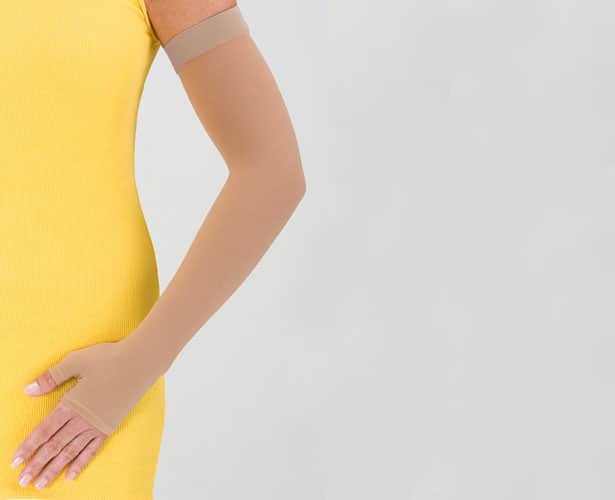Mention AIDS, multiple sclerosis or Parkinson’s Disease and most people know what you’re talking about. But, mention lymphedema, and the condition is not familiar at all.
Yet, according to the National Institutes of Health, lymphedema affects approximately one in 1000 Americans and as many as 200 million people worldwide.
Oak Hill Hospital has been offering lymphedema treatment services since October 2018 under the guidance of Felipe Chin P.T. D.P.T. — a nationally certified lymphedema therapist (CLT).
Chin took time out last week to talk about lymphedema and the body’s lymphatic system which is responsible for absorbing fluid from tissues and transporting it back into circulation. Lymph nodes are small, bean-shaped structures that filter lymph and store white blood cells important in helping fight infection and disease.
“Lymphedema is the build-up of fluid in soft body tissues when the lymphatic system becomes damaged or blocked,” Chin explained. “The excess fluid can cause swelling in most all parts of the body although it’s typically arms and legs that are first affected.”
There are two types of lymphedema. Primary lymphedema, which is rare, is a genetic condition in which the lymph nodes or vessels are missing or aren’t fully developed; and Secondary lymphedema, triggered by another condition that has damaged the lymph nodes or vessels, could be caused by lymph node infection, cancer, radiation, surgery or injury and treatment from cancer, including lymph node removal and/or radiation therapy infection.
It could be the condition can occur within days, weeks, months or even years after surgical treatments, or it may develop during radiation therapy. It often develops slowly but becomes apparent within two years of cancer treatment.
“A person with lymphedema may experience heaviness in the affected arm or leg; clothing, jewelry that feels tight or displays indentation in the skin when applying pressure,” said Chin. “One may also experience decreased flexibility in the limbs or the loss of normal contours of the arm or leg.”
Chin provides comprehensive de-congestive therapy with inpatients at their bedside to plan for care after discharge, as well as with outpatients at the hospital’s Outpatient Rehabilitation Services Department.
“Therapy techniques first involve hydrating and protecting the skin,” said Chin. “I also use massage to firmly squeeze tissues to coax fluid back into circulation and then I wrap the affected area with stretchy bandages to provide support and compression during recovery.”
Chin explained that each patient is different but he always recommends light exercise to improve their flexibility and function.
“I also encourage wearing compression stockings to improve the flow of blood and the drainage of lymph, especially in the feet and ankles and sometimes the hands,” he said.
“Compression levels range from mild support to medium to firm,” he said.
Patients can purchase Lymphedema Bandaging Kits to help address their ongoing lymphedema issues at home. Kits comprise all the necessary tools and materials to help combat lymphedema on a daily basis.
Lymphedema can occur in both men and women but statistics show that women who have undergone breast cancer surgery can be at extra risk.
Cheryl Whitman, the Patient Care Navigator for Women’s Imaging at Oak Hill Hospital, spoke about the effects the added lymphedema services have had on mastectomy patients.
“Lymphedema is something we watch for very carefully after breast cancer surgery,” she said. Any symptoms of heaviness or fullness in the arm should be dealt with as soon as possible.”
She also stressed that it’s advisable to avoid plane travel and hot temperatures or activities that may exacerbate lymphedema.
Untreated lymphedema can cause long-term physical and social problems for patients. There is no cure for lymphedema. Treatments are designed to reduce the swelling and control discomfort and other symptoms. If you are experiencing any symptoms of lymphedema, first consult your primary physician.
CONTACT
Oak Hill Hospital
11307 Cortez Boulevard,
State Road 50
Brooksville, Florida 34613
Phone: (352) 597-6321
Website: oakhillhospital.com/rehab
Visit lymphnet.org for more information on Lymphedema.

